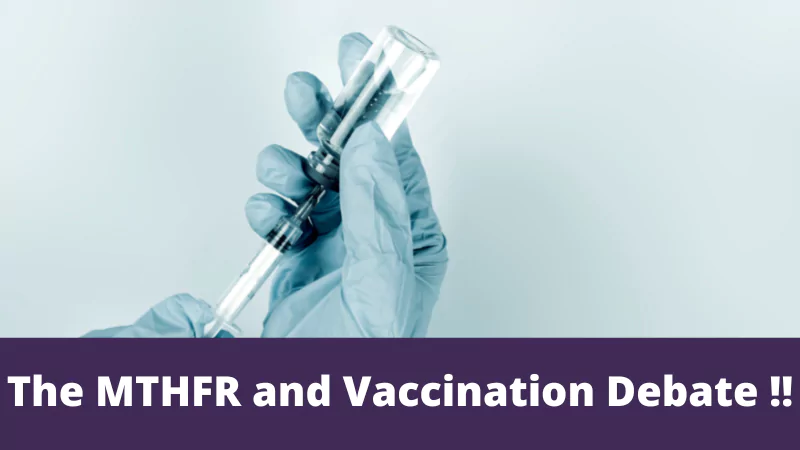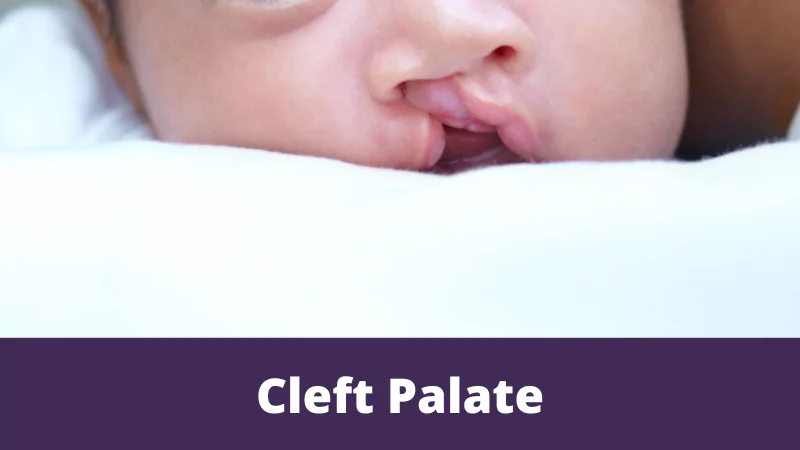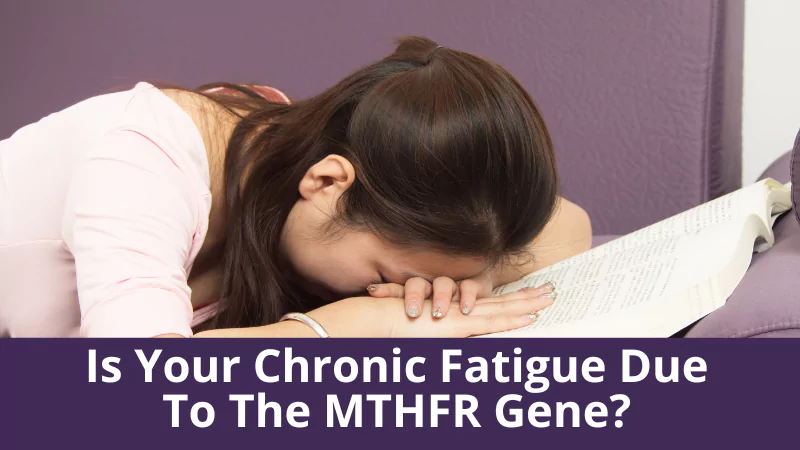Should Children with MTHFR Deficiency Receive Scheduled Vaccinations?
The Australian government and its public health organization announces that under the changes to the Public Health Act 2010, child care facilities cannot enrol a child unless approved documentation has been provided that shows the child is fully vaccinated for their age.1 Furthermore, the federal president, Dr. Steve Hambleton, of the Australian Medical Association (AMA) mentioned that the government should make it difficult for unvaccinated children to get to school.2 Even though exceptional conditions are set up for those children with enough reason to show that they cannot be vaccinated, it is necessary to research and find evidence for those children with medical issues that are not clearly identified as vaccination avoidance, and one of the issues currently under research is the methylenetetrahydrofolate reductase (MTHFR) deficiency.
MTHFR and Vaccination:
MTHFR affects the distribution of folate and maintains a delicate balance between folate for nucleotide synthesis and those for methionine synthesis.3 Mild MTHFR deficiency occurs because of homozygosity for a C to T substitution at bp677 which occupies about 10% of North American, European and Australian populations,4 and causes MTHFR reduction resulting in hyperhomocysteinemia, methylation reduction and non-methylated folate increase. Reports related to adverse events of vaccination on MTHFR are available but yet relatively new and limited, which are described as follows.
1. Clear Adverse Events after Smallpox Vaccination
Strong and convincing evidence comes from two independent clinical trials conducted by scientist groups including the U.S. National Institutes of Health (NIH).5 The two clinical trials were conducted in 85 and 46 healthy and vaccinia-naïve adult volunteers respectively with a smallpox vaccine (APSV). Among the tested 1442 single nucleotide polymorphisms (SNPs), the MTHFR gene is one of the two genes that are found associated with adverse events in both of the two independent clinical trials, in which a nonsynonymous MTHFR SNP rs1801133 is strongly related to the risk in both studies. The functional study of the MTHFR SNP rs1801133 shows that it is thermolabile and affecting the quantity and activity of the MTHFR enzyme, which works in vivo as a key component in homocysteine metabolism in regulating endothelial function.6
Since the MTHFR SNP variation is associated with changes in cardiovascular function, toxicity of immune suppressive drugs, and systemic inflammation,7-10 the vaccination of smallpox may elicit immune responses through elevated plasma homocysteine levels and stimulated endothelial inflammatory responses. This may result in rapid cell growth and increased DNA synthesis metabolites, and thus the alteration in MTHFR enzyme level or activity may have significant impact on this process causing systemic adverse events including cardiac events.
The results indicate that smallpox vaccination is not acceptable even in adults with the MTHFR SNP. Since it is not possible to conduct similar clinical trials in children due to ethical reasons, we can only predict that the same vaccination should not be applied to children with the MTHFR SNP. The question is if any other types of vaccination cause adverse event in MTHFR defective children, and other than these short term adverse event, if any long term adverse events happen after MTHFR children receive vaccinations.
Currently we have no answer to these or any other related questions. One of the important discussions ongoing online is if vaccination of MTHFR children is related to autism.
2. Are MTHFR, Autism and Vaccinations Related?
Autism is a neurodevelopmental disorder featured with social withdrawal, repetitive behaviour, and communication deficits, and its cognitive manifestations range from a non-verbal child with retardation to a college student with higher IQ, in which no cause has been identified thus far.11 Currently, there are ongoing discussions online guided by known medical doctors considering connections between MTHFR, vaccination and autism.12 But by literature searching, not enough evidence is available to fully support these discussions. What we have is that MTHFR deficiency has been related to the development of autism.
The increased use of folate in maternal treatment increases survival rate of children with MTHFR deficiency. But if these children are not supplied with sufficient folate during their development, they will eventually develop neurological regression with increased chances of autism, since folate reduces incidence of neural tube defects by about 70%.13 The fact is that genetic folate enzyme polymorphisms are commonly displayed in autism with up to 50% reduction in activity.14 In addition, after pregnant women were supplied with folic acid from 1992 to 2007, which prevented neural tube defects, autism onset rate is on the rise as the consequence.
As hypothesized by Rogers,15 it is likely that folic acid supplementation to pregnant women alters the natural selection to favour an adverse gene polymorphism of MTHFR C677T, which is in high frequency in autism cases. This happens because when a child with MTHFR deficiency does not intake enough folic acid, the gene silencing effect by methylation from folic acid has defects resulting in inappropriate neurodevelopment and autism.
On the other hand, live measles-mumps-rubella (MMR) vaccination was reported to contribute to the cause of autism in 1998.16 It is said that autism was onset shortly after live MMR vaccination in 9 out of 12 vaccinated children with regression and bowel symptoms. But in 2003, another report reviewed a number of epidemiologic studies and uncovered that no evidence has been found to support the report of 1998, and that the MMR vaccination was not associated with autism symptoms or onset.17
One of the critical reports is from the U.S. Institute of Medicine Immunization Safety Review Committee stating that there is not enough evidence to confirm that MMR vaccination is associated with autism.18 But as a component of some vaccines, an organic mercury called thimerosal or ethyl mercury, is considered possibly to cause autism, since it has been documented that prenatal exposure to methyl mercury, a compound closely related to thimerosal, can affect early childhood development.
Based on above literature information, it is clear that MTHFR deficiency is associated with autism, and maternal supplementation of folic acid increases onset rate of autism possibly because the folic acid supplement increased the survival rate of MTHFR deficient newborns. With regards to the relationship between MMR vaccination and autism, there is currently not enough scientific support to prove it, but it is possible that a vaccine component of thimerosal or ethyl mercury causes autism in early childhood vaccinations. In addition, thus far, there is no scientific report that shows the triple relationship between MTHFR deficiency, vaccination and autism.
3. Online Discussions about MTHFR and Vaccinations
As mentioned above, there are currently ongoing discussions guided by known medical doctors and healthcare experts about the risks of children with MTHFR deficiency and scheduled or required vaccinations. One of them is guided by Dr. Ben Lynch, the founder of MTHFR.net. As Dr. Lynch mentioned in an online discussion, “Personally, I would not recommend vaccinating any child with a homozygous MTHFR mutation … When you combine these possible mutations along with MTHFR and vaccinations – it is a recipe for autism”.12
As another discussion of Vaccines, Autism, and Susceptible Groups, it is said that “we know that in some cases, vaccines do cause autism” and “the U.S. Government has awarded more than 3 Billion Dollars to families of vaccine-injured children, including many children who developed autism after vaccination”. The discussion website also lists MTHFR as avoidance for vaccinations.
4. Summary
In summary, scientific study and evidence show that smallpox vaccination is strongly related to adverse events in healthy adults carrying MTHFR SNP rs1801133. In addition, folic acid as a maternal supplement increases autism onset rate possibly due to its effect of increasing survival rate of newborns with MTHFR deficiency. Furthermore, there is not enough evidence supporting the reports of MMR vaccination causing autism, but it is hypothesised that a vaccine component of thimerosal or ethyl mercury may be related to autism in early childhood vaccinations. Finally, there is no currently scientific evidence showing the triple relationship between MTHFR, autism and vaccination; but there are ongoing online discussions guided by known medical doctors and healthcare experts to help parents to better understand current research and information about these topics.
Bibliography
1. New South Wales Government Health. Vaccination: Questions & Answers for Child Care Facilities. The Public Health Amendment, 1 January 2014. http://www.health.nsw.gov.au/immunisation/pages/childcare_qa.aspx
2. Swan J, Corderoy A. No vaccine, no school, says AMA chief. The Sydney Morning Herald, April 11, 2013. http://www.smh.com.au/federal-politics/political-news/no-vaccine-no-school-says-ama-chief-20130411-2hn29.html
3. Roy M, Leclerc D, Wu Q, Gupta S, Kruger WD, Rozen R. Valproic acid increases expression of methylenetetrahydrofolate reductase (MTHFR) and induces lower teratogenicity in MTHFR deficiency. J Cell Biochem. 2008; 105(2): 467-76. PMID: 18615588
4. Wilcken B, Bamforth F, Li Z, Zhu H, et al. Geographical and ethnic variation of the 677C>T allele of 5,10 methylenetetrahydrofolate reductase (MTHFR): findings from over 7000 newborns from 16 areas world wide. J Med Genet. 2003; 40(8): 619-25. PMID: 12920077
5. Reif DM, McKinney BA, Motsinger AA, Chanock SJ, Edwards KM, Rock MT, Moore JH, Crowe JE. Genetic basis for adverse events after smallpox vaccination. J Infect Dis. 2008; 198(1): 16-22. PMID: 18454680
6. Martin YN, Salavaggione OE, Eckloff BW, Wieben ED, Schaid DJ, Weinshilboum RM. Human methylenetetrahydrofolate reductase pharmacogenomics: gene resequencing and functional genomics. Pharmacogenet Genomics. 2006; 16(4): 265-77. PMID: 16538173
7. Dedoussis GV, Panagiotakos DB, Pitsavos C, et al. An association between the methylenetetrahydrofolate reductase (MTHFR) C677T mutation and inflammation markers related to cardiovascular disease. Int J Cardiol. 2005; 100: 409–414. PMID: 15837084
8. Lim U, Peng K, Shane B, et al. Polymorphisms in cytoplasmic serine hydroxymethyltransferase and methylenetetrahydrofolate reductase affect the risk of cardiovascular disease in men. J Nutr. 2005; 135: 1989–1994. PMID: 16046727
9. Murphy N, Diviney M, Szer J, et al. Donor methylenetetrahydrofolate reductase genotype is associated with graft-versus-host disease in hematopoietic stem cell transplant patients treated with methotrexate. Bone Marrow Transplant. 2006; 37: 773–779. PMID: 16518429
10. Urano W, Taniguchi A, Yamanaka H, et al. Polymorphisms in the methylenetetrahydrofolate reductase gene were associated with both the efficacy and the toxicity of methotrexate used for the treatment of rheumatoid arthritis, as evidenced by single locus and haplotype analyses. Pharmacogenetics. 2002; 12: 183–190. PMID: 11927833
11. Currenti SA. Understanding and determining the etiology of autism. Cell Mol Neurobiol. 2010; 30(2): 161-71. PMID: 19774457.
12. Dr. Ben Lynch. MTHFR and Vaccines/Immunizations – Contraindicated? MTHFR.net, 7 March, 2012.
13. Milunsky A, Jick H, Jick SS et al. Multivitamin/folic acid supplementation in early pregnancy reduces the prevalence of neural tube defects. JAMA. 1989; 262(20): 2847–2852. PMID:2478730
14. Scriver, CR, Beaudet, AL, Sly, WS et al. The metabolic and molecular basis of inherited disease. : New York: McGraw-Hill; 2000.
15. Rogers EJ. Has enhanced folate status during pregnancy altered natural selection and possibly autism prevalence? A closer look at a possible link. Med Hypothesis. 2008; 71: 406–410. PMID: 18514430
16. Wakefield AJ, Murch SH, Anthony A et al. Ileal-lymphoidnodular hyperplasia, non-specific colitis, and pervasive developmental disorder in children. Lancet. 1998; 351: 637–641. PMID: 9500320
17. Miller E. Measles-mumps-rubella vaccine and the development of autism. Semin Pediatr Infect Dis. 2003; 14(3): 199–206. PMID: 12913832
18. Institute of Medicine (US) Immunization Safety Review Committee. Immunization Safety Review: Vaccines and Autism. Washington (DC): National Academies Press (US); 2004. PMID: 20669467
19. Category M. Vaccines, Autism, and Susceptible Groups: Is Your Child At Increased Risk? VaxTruth. September 10, 2014.
Other resources/Blogs and further reading:
Vaccines, Autism, and Susceptible Groups: Is Your Child At Increased Risk?http://vaxtruth.org/2014/09/susceptible-groups/
MTHFR & Vaccinations
https://babyfoodsteps.wordpress.com/2013/10/23/its-no-vaccident/
**Update** Dr Mullan weighs in on vaccinations & MTHFR
http://community.babycenter.com/post/a42277897/update_dr_mullan_weighs_in_on_vaccinations_mthfr
MTHFR and Vaccination









